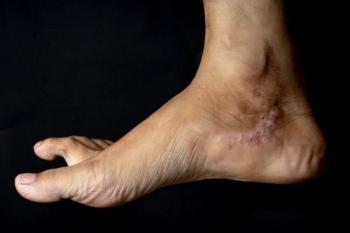
The results of this week’s poll about Medicare cap extension.

Cyberattacks disproportionately affect healthcare organizations. In 2023, the average data breach cost to a healthcare company was $10.93 million, an 8% increase from the previous year.

The study suggests financial barriers are negatively impacting the wellbeing, productivity and healthcare experiences of Americans with employer-sponsored insurance.

Madrigal Pharmaceuticals is pricing Rezdiffra (resmetirom) at wholesale acquisition price of $47,400 per year.

Six airports currently participate in the volunteer COVID detection tests.

Healthcare Ready, a nonprofit organization committed to protecting the U.S. healthcare system against disasters and pandemics, recently concluded an initiative aimed to understand the consequences of the COVID-19 pandemic and other disaster-related threats on the healthcare workforce.

93% of customers are “satisfied” or “very satisfied” with their coverage this year.

CMS says to stay tuned for guidelines that will allow states to better support their Medicare providers.

As women age, hormonal shifts during menopause often bring visible changes in their physical appearance. Cynthia Elliott, M.D., owner and primary practitioner at Skinspirations, shed light on the concept of "menopause makeovers" and how medical aesthetic procedures can address these changes toward women.

The Incyte drug is headed for assessment in a phase 3 trial.

Wellpoint is the latest to expand mental health services, teaming up with InStride to offer virtual care for children and adolescents with anxiety and obsessive-compulsive order.

The 92-year-old "Star Trek" star said the skin cancer was treated surgically and with immunotherapy. It was apparently the first time he had discussed his melanoma in public.

Patient preference does not decrease even if their usual provider is unavailable.

The clinical associate professor at the Rosalind Franklin University Chicago Medical School and founder and director of the Center for Medical Dermatology and Immunology Research in Chicago, spoke in a session over the weekend at the American Academy Dermatology meeting about conditions that may mimic atopic dermatitis.

Should the Medicare $2,000 per year cap on out-of-pocket costs for prescription drugs be extended to commercial insurance?

No safety signals emerged during the 26-month open label study of Vyjuvek (beremagene geperpavec), a topical gel approved as a treatment for dystrophic epidermolysis bullosa.

A phase 2 study demonstrated positive results for remibrutinib, a BTK inhibitor, as a treatment for patients with the rare skin condition, hidradenitis suppurativa, finds a study presented at the American Academy of Dermatology Association.

In a discussion with Managed Healthcare Executive, Robert Sidbury, M.D., M.P.H, FAAD, professor of pediatrics at the Seattle Children's Hospital talks about what it takes to run a dermatology practice and how to implement value-based care initiatives.

At the American Academy of Dermatology meeting in San Diego, Raj J. Chovatiya, M.D., Ph.D, discussed the evolution of studies on Jak inhibitors post-approval.


They range from skin conditions associated with sexually transmitted infections to acne to hair loss and removal for the alignment of appearance to gender identity.

People of color are more likely to develop atopic dermatitis and have more severe disease. Vtama, currently approved to treat plaque psoriasis, is being studied to treat patients with atopic dermatitis.

The FDA has approved Wegovy for reducing cardiovascular risks in people who are obese or overweights. The agency approved new biosimilars that reference Actema, Prolia and Xgeva. Additionally, the FDA plans to hold advisory committee meeting for donanemab in Alzheimer’s disease.

A content analysis of 75 TikTok videos showed that most have positive information about the oral acne medication, which was previously sold under the brand name Accutane. But larger majority (77%) of the videos have negative information about isotretinoin, and a large percentage of those videos give the positive effects only a passing mention, if any at all.

At the webinar event, held by the Pharmacy Benefit Management Institute, industry leaders discussed the patient’s journey and the latest trends in the oncology market.

The results of this week’s poll about health insurance coverage of GLP-1s for weight loss.

In a discussion with Managed Healthcare Executive, Jonathan I. Silverberg, M.D., Ph.D., M.P.H., an Associate Professor of Dermatology at The George Washington University School of Medicine and Health Sciences, discussed the concept of "atopic march."

There was no mention in President Joseph Biden's Statue of the Union Address about PBM reform, which has garnered a lot of interest from patient advocates and Congress over the last year.

The annual meeting will run through Tuesday.